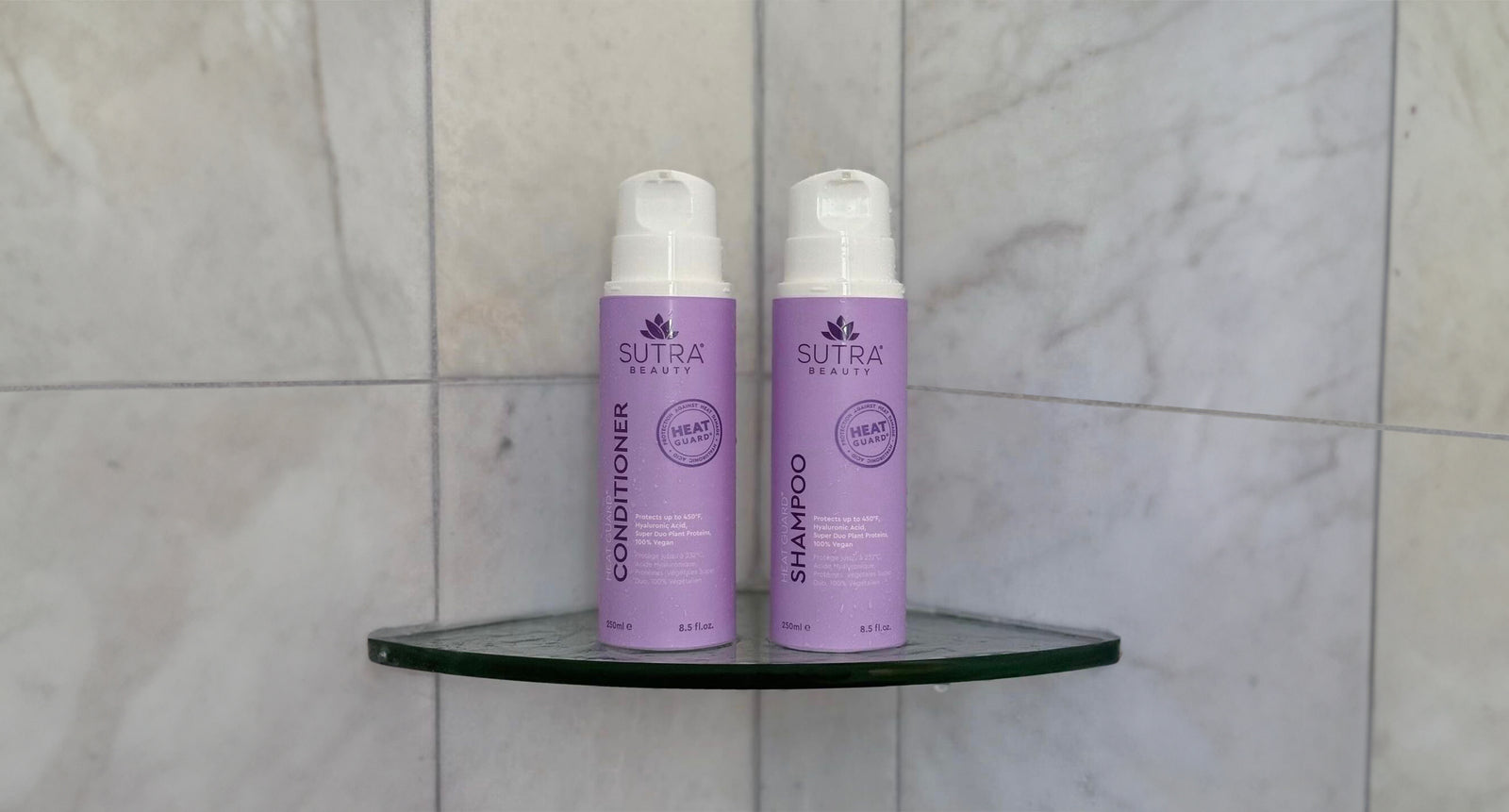We all strive for luscious locks and healthier hair, often investing time and money in various products. Shampoo, a staple in our hair care routine, is intended to cleanse and nourish our strands. However, with the myriad of products available on the market, a lingering question arises: Can shampoo damage your hair?
The Ingredients Conundrum:
One of the primary factors contributing to the potential damage of hair by shampoo is the ingredients used in its formulation. Sulfates, often found in many commercial shampoos, are powerful detergents that effectively remove dirt and oil from the hair. However, they can also strip away natural oils, leaving even healthy hair dry and prone to breakage. Opting for sulfate-free shampoos, like SUTRA’s Heat Guard: Shampoo, is a gentler alternative, especially for those with sensitive hair.
Overwashing Woes:
While cleanliness is crucial, overwashing your hair can strip it of its natural oils, leading to dryness and damage. The frequency of shampooing depends on various factors, including hair type, lifestyle, and personal preference. For some, washing every day might be necessary, while others may find that washing a few times a week is sufficient. Finding the right balance is key to maintaining healthy hair.
The Importance of Moisture:
Hair thrives on moisture, and shampoos that fail to provide adequate hydration can contribute to damage. Look for shampoos with moisturizing ingredients such as argan oil, hyaluronic acid, or quinoa extract to help keep your hair well-hydrated. Additionally, incorporating a conditioner with these ingredients, like SUTRA’s Heat Guard: Conditioner, into your routine can further lock in moisture and promote overall hair health.
Hair Type Matters:
Not all hair is created equal, and different hair types have unique needs. While some may benefit from the clarifying properties of certain shampoos, others may find those same products too harsh. Understanding your hair type and its specific requirements is essential in choosing the right shampoo for your individual needs. As a rule of thumb, be sure to check if the shampoo is safe for all hair types-especially chemically and color treated hair.
While the question of whether shampoo can damage your hair has nuances, the key lies in making informed choices about the products you use and adopting a hair care routine that aligns with your unique needs. By understanding your hair type, reading product labels, and practicing moderation in your hair care routine, you can enjoy the benefits of clean and healthy-looking locks. Remember, beautiful hair is a reflection of proper care and products.
The Ingredients Conundrum:
One of the primary factors contributing to the potential damage of hair by shampoo is the ingredients used in its formulation. Sulfates, often found in many commercial shampoos, are powerful detergents that effectively remove dirt and oil from the hair. However, they can also strip away natural oils, leaving even healthy hair dry and prone to breakage. Opting for sulfate-free shampoos, like SUTRA’s Heat Guard: Shampoo, is a gentler alternative, especially for those with sensitive hair.
Overwashing Woes:
While cleanliness is crucial, overwashing your hair can strip it of its natural oils, leading to dryness and damage. The frequency of shampooing depends on various factors, including hair type, lifestyle, and personal preference. For some, washing every day might be necessary, while others may find that washing a few times a week is sufficient. Finding the right balance is key to maintaining healthy hair.
The Importance of Moisture:
Hair thrives on moisture, and shampoos that fail to provide adequate hydration can contribute to damage. Look for shampoos with moisturizing ingredients such as argan oil, hyaluronic acid, or quinoa extract to help keep your hair well-hydrated. Additionally, incorporating a conditioner with these ingredients, like SUTRA’s Heat Guard: Conditioner, into your routine can further lock in moisture and promote overall hair health.
Hair Type Matters:
Not all hair is created equal, and different hair types have unique needs. While some may benefit from the clarifying properties of certain shampoos, others may find those same products too harsh. Understanding your hair type and its specific requirements is essential in choosing the right shampoo for your individual needs. As a rule of thumb, be sure to check if the shampoo is safe for all hair types-especially chemically and color treated hair.
While the question of whether shampoo can damage your hair has nuances, the key lies in making informed choices about the products you use and adopting a hair care routine that aligns with your unique needs. By understanding your hair type, reading product labels, and practicing moderation in your hair care routine, you can enjoy the benefits of clean and healthy-looking locks. Remember, beautiful hair is a reflection of proper care and products.


